Great Dane barking can be a real problem. These dogs are known for their loud, deep bark, and sometimes it seems like they just won’t stop. If you’re dealing with this issue, don’t worry – you’re not alone. In this article, we’ll discuss the causes of loud or destructive behavior in your Great Dane and offer some tips on how to deal with it.



Great Dane Barking: An Important Sign of Dog Breed Characteristics
Great Danes are generally very mild, especially for such a large dog. But their bark can be quite deep and intimidating, which is so often associated in movies and TV shows as a sign of aggression.
However, you do not want to jump to conclusions about the Great Dane temperament just because you are having a hard time stopping all of the ruckus and barking.
In reality, your Great Dane is probably just trying to communicate with you. This is one of the most important things to remember when dealing with this issue.
There are a few different things that your Great Dane could be attempting to say with its barking.
Your Great Dane Dog Could Be Bored
First, your dog may be bored. If you’ve noticed that your Dane only seems to bark when it’s left alone or doesn’t have anything else to do, this is likely the case. Dogs are social creatures, and they need stimulation and interaction just like we do. If you think your Dane might be bored, try adding some new toys to its toy box or taking it on more walks. You might also want to consider doggy daycare or hiring a dog walker if you’re gone for long periods during the day. Finally, long lasting bones are a great way to help your Great Dane have an activity throughout the day. Here are some of the best:
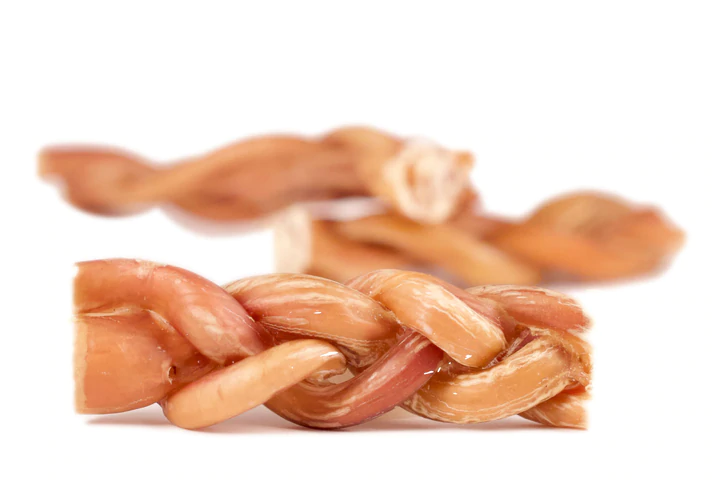

Your Great Dane is Scared or Anxious
Another possibility is that your Dane is trying to protect itself. This is especially common in Great Danes that have a history of anxiety or fear.
It is most common amongst Great Dane owners to misunderstand their Great Dane’s fear for ‘honor’. Many people think that their big dog is trying to protect them as its owner.
However, most of the time when you have large dogs who are expressing themselves with an abundance of reactive barking, it is not because they are scared for YOU… In fact, they are actually just scared for themselves.
Working with a responsible and qualified trainer, practicing ethical and balanced training methods such as e collar training or crate training and providing enough exercise can be methods to help your Giant Breed conquer their anxiety.
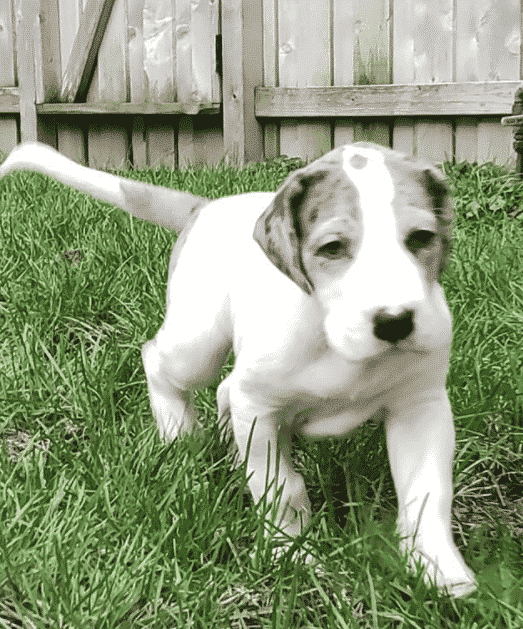
The Best Crate for a Great Dane Puppy: Click Here
Your Great Dane Simply Needs Boundaries
Usually barking is a bigger issue with Great Dane puppies than an adult dog. However, at random times throughout the life of giant breed dogs, problems can pop up, including random barking.
If you notice either your Great Dane pup or adult Great Danes are beginning to bark or react at random, and you have eliminated anxiety and boredom, you will want to work on reestablishing your Great Dane’s boundaries. You may want to examine whether you are making one of the 5 common mistakes that we see often with training Great Danes:
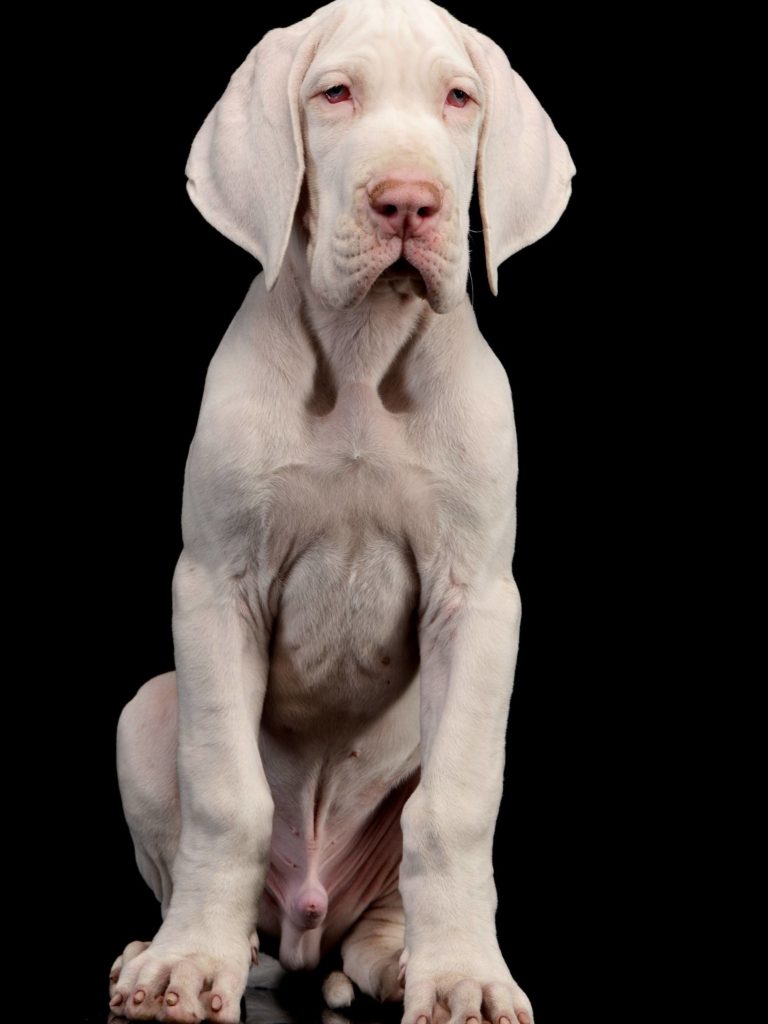
5 Common mistakes you may be making when Training Your Great Dane
Consider the amount of exercise Great Danes should get in one day, invest in some good puzzle feeders to keep your Great Dane busy and motivated, purchase some quality treats to motivate your gentle giant, and begin working on creating those expectations. Here are a few of our favorite slow feeders to keep your pup engaged:

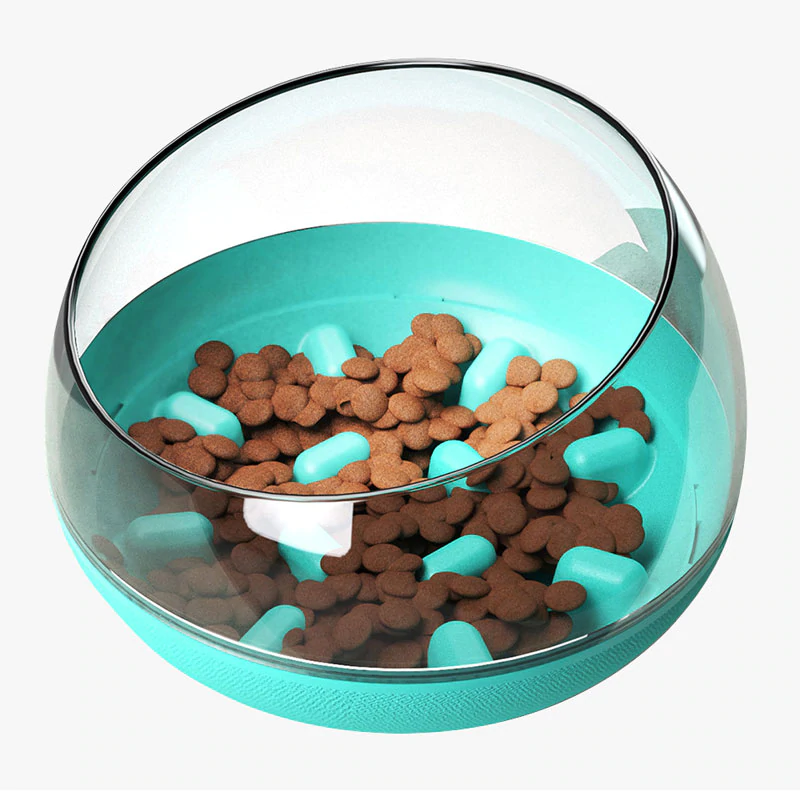
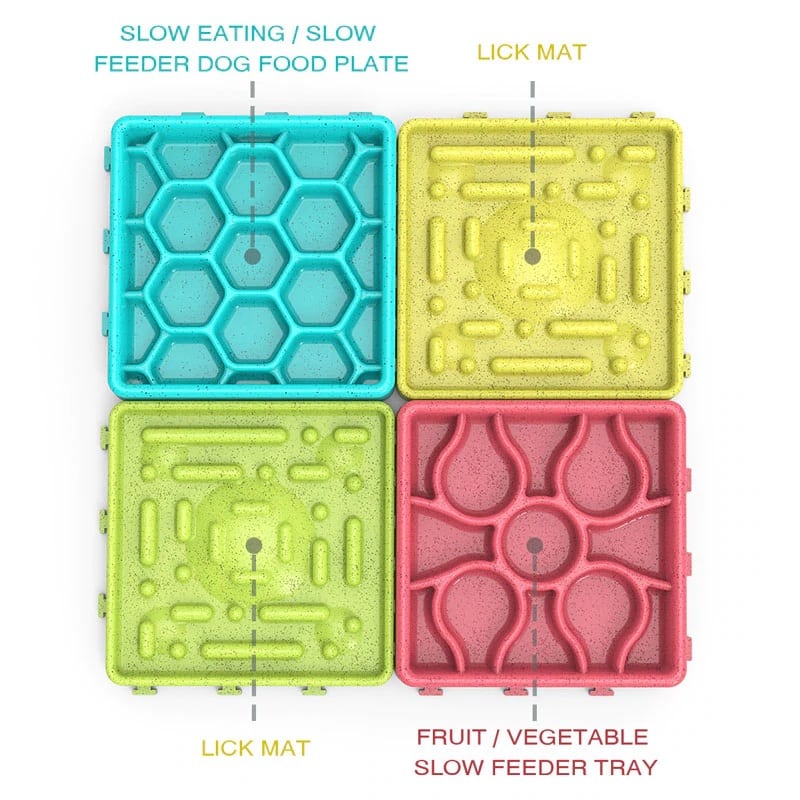
And, here are a few of our favorite treat options:

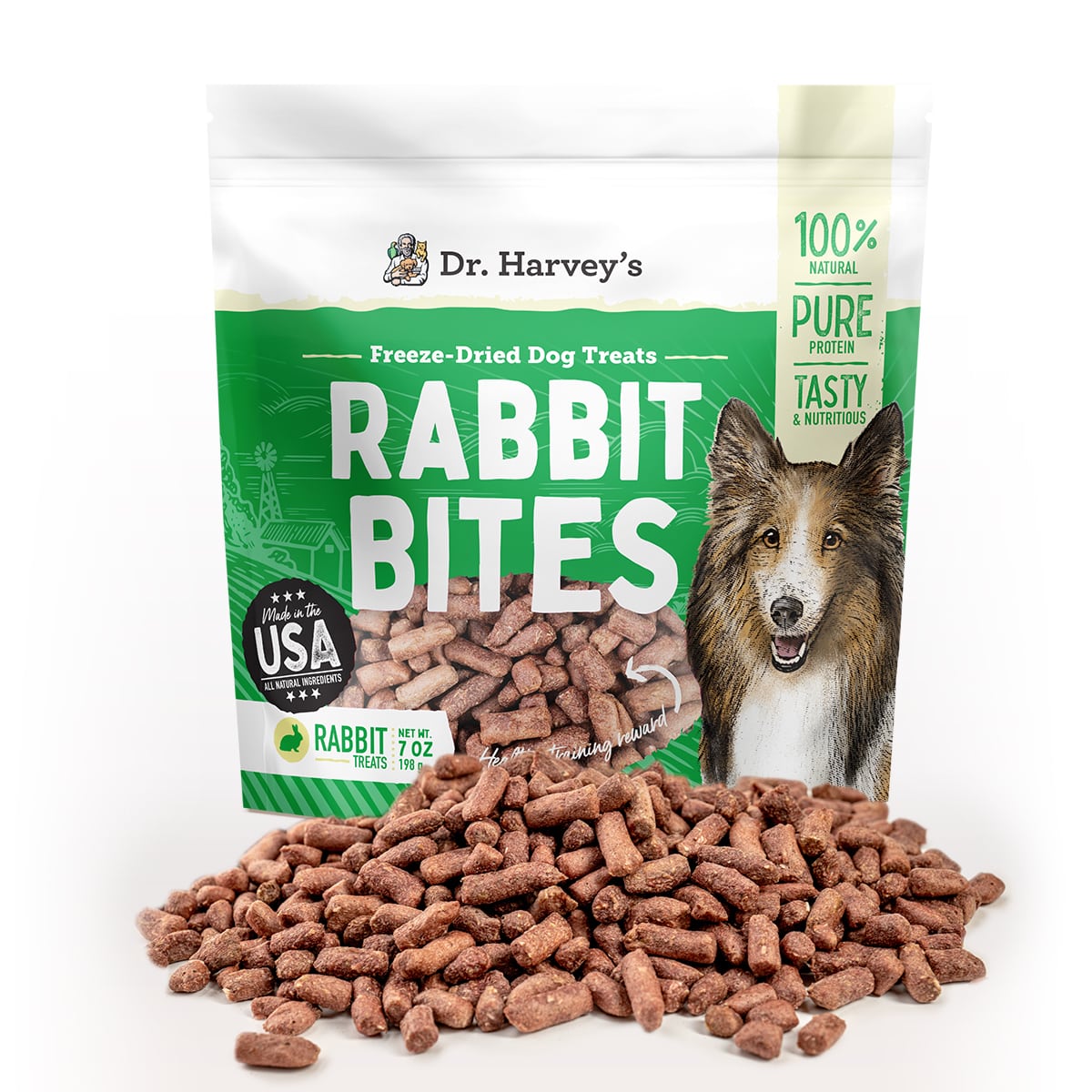

Do Health Problems Make Great Danes Aggressive?
Do genetic health problems make Great Danes aggressive? That’s a loaded question, and one that scientists are still trying to answer. If you haven’t looked into common health issues that pop up with Great Danes, you may want to.
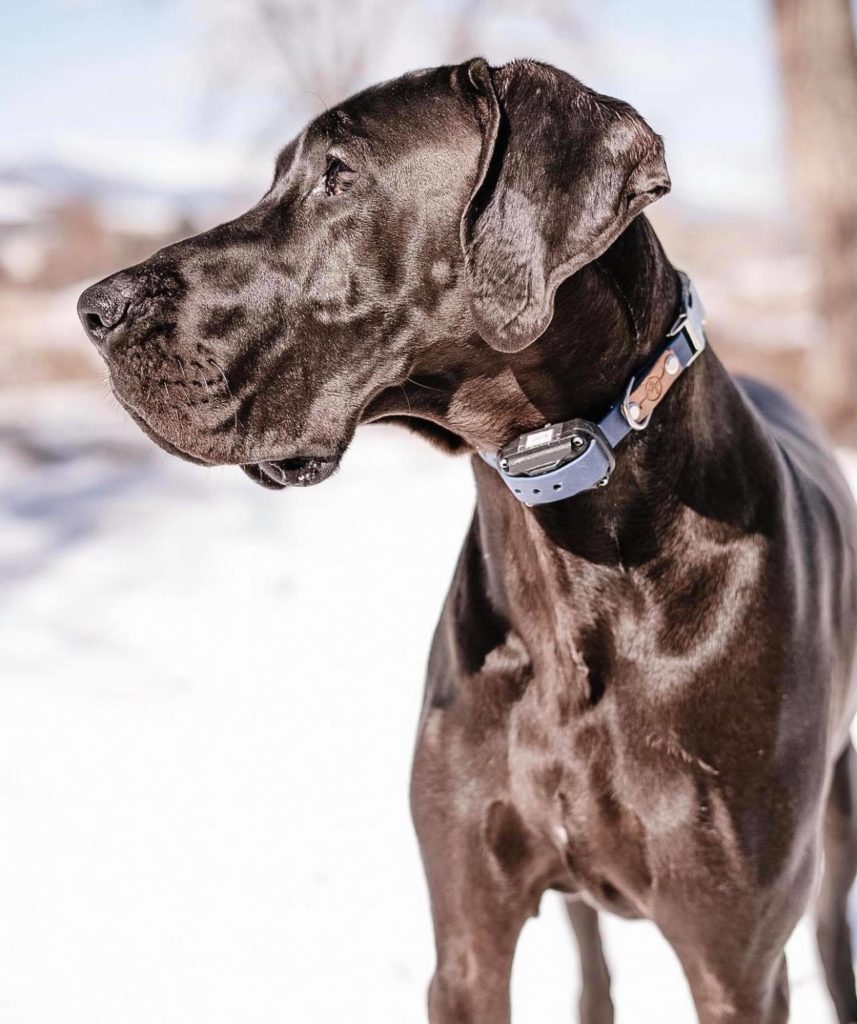
7 Health Battles that Great Danes Fight
There is some evidence that certain health problems can increase aggression in dogs, but it’s still unclear exactly how much of a role those problems play.
Hip Dysplasia / Joint Disease in Great Danes in Association with Barking, Growling, Lunging
For example, hip dysplasia is a genetic condition that can cause joint pain and mobility problems. Some research has shown that dogs with hip dysplasia are more likely to be aggressive, but it’s mostly pointing to the fact that the aggression is caused by the pain rather than by actual health factors.
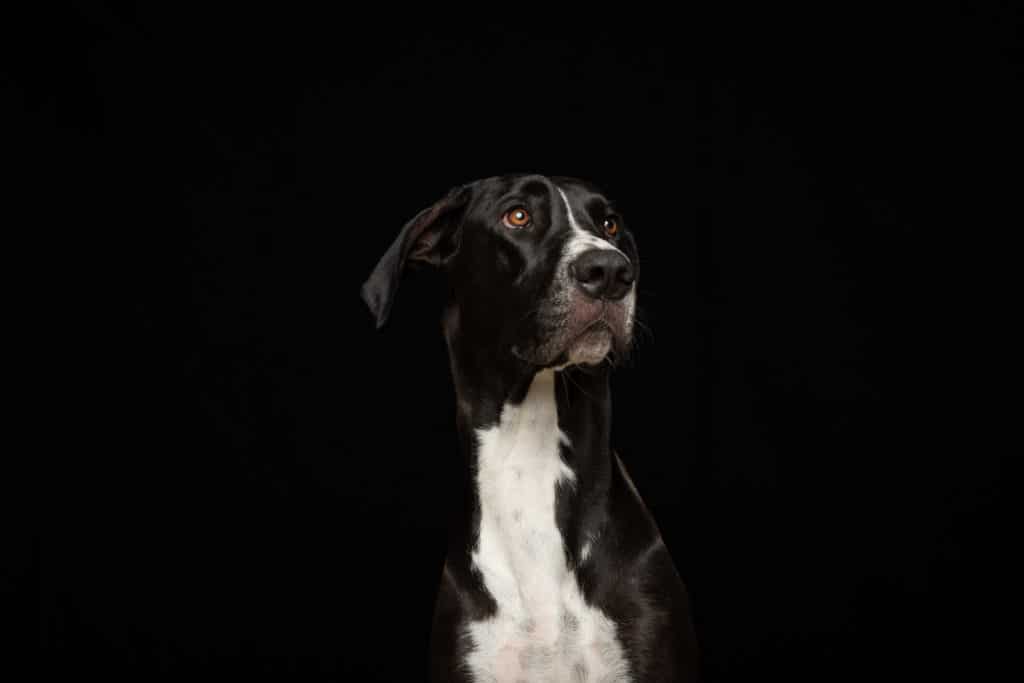
Arthritis in Great Danes? Read here.
Chronic Pain in Great Danes and Barking
Likewise, dogs who experience any form of chronic pain are more likely to act out aggressively. This is because they’re in a constant state of discomfort, and they may lash out as a way to protect themselves.
A Dog’s Age in Correlation with Barking or Reactivity
Different dog breeds age at different rates, and thus, have a different life span. Young dogs might be more tolerant to more things such as wrestling with other dogs or playing with young kids. Alternatively, a young, energetic Great Dane might be more eager to bark at a distraction walking outside of the window than an adult Great Dane.
This could be for a variety of reasons, but the most likely scenario is that the adult Great Dane has already learned its lesson and doesn’t need to be reminded as often.
For more information about the life span of a Great Dane, make sure to check this blog out:
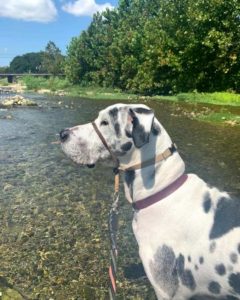
How long do Great Danes live? Well, this sweetie named Harleigh is 10 and thriving! Read more here!
Photo Credit to Chelsea & Harleigh at @mixedwithout
Reactivity in Senior Dogs
Conversely, senior dogs are more prone to developing health problems that can cause pain and other issues. They may also be more sensitive to things like changes in their environment or routine.
While there isn’t a definitive answer on whether or not health problems cause aggression, it’s important to keep an eye on your dog’s health and consult with your veterinarian if you notice any changes in behavior.

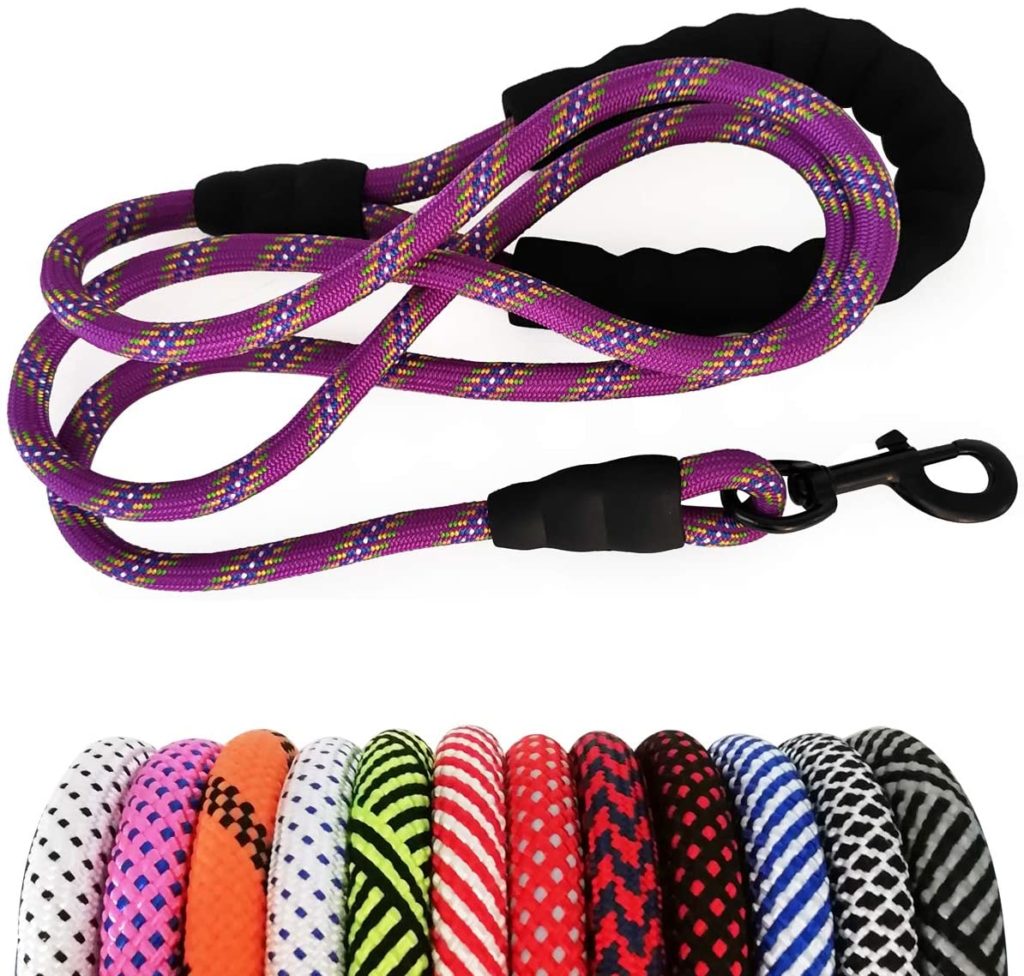
Reputable Breeders and the Role They Play with Your Great Dane
For anyone looking to adopt a Great Dane, finding a reputable breeder is essential.
Reputable breeders know everything there is to know about the breed and can help you select the perfect dog based on your lifestyle and preferences.
Why Do Responsible Great Dane Breeders Matter?
Additionally, responsible breeders prioritize keeping the qualities that make Great Danes so unique intact, while also working hard to eliminate inherent health issues in their lines. In other words, they are not just breeding dogs to breed dogs and the Great Danes that you find with a high quality breeder are not the same in regards to health and longevity as you would find at a pet store.
Finding a Healthier Dog For Your Family
Whether you are looking for a show-quality Dane or just want an energetic companion to take hiking, a reputable and responsible breeder will be able to help you find the perfect match for your needs. No matter what you are looking for, everybody wants to find a family member to love on for the longest possible life span.
Bad Breeder Red Flags
We have an abundance of resources on breed characteristics to look for in a Great Dane as well as what makes a well rounded dog and what to avoid from a Great Dane breeder. Be sure to check out our breeder resources here:
Great Dane Puppies and Obedience Training
Great Dane puppies are known for their lovely, friendly personalities and their eagerness to please.
Whether you’re training them yourself or sending them off to puppy obedience school, it’s important to start early and be consistent in your efforts. This will ensure that your dane puppy grows into a well behaved canine companion who is always eager to obey your commands.
Training a Great Dane Puppy
Training a Great Dane puppy is unique to other dog breeds. One of the best ways to train a gentle giant is by taking advantage of their curious and playful nature. Take advantage of your young dog’s age and work with them in a fun and positive way. As long as you stay patient and upbeat, dane puppies will learn quickly and enjoy the process along the way.
Using Treats, Praise and Fun for Your Giant Breeds
To keep things engaging and interesting, try breaking up your training sessions into short segments, making sure to use positive reinforcement techniques like treats or praise when they perform successfully. Here are some of our favorite treat sets for gentle giants:


Remain Positive with Your Great Dane
Additionally, you should always acknowledge Danes for good behavior, even if it’s just a simple head scratch or a loving pat on the back. After all, every dog wants to feel loved!
Ethical Use of the E Collar
We are advocates for Dane owners use of ethical e collar training with their Great Danes. If you are interested, here are some resources for e collar training with Great Dane dogs linked:
Whether you’re working with an older dane or raising a brand new pup, keeping things fun and rewarding will help build confidence as well as obedience in your Great Dane puppy. Remember that getting through those early puppy stages can be tough, but by being patient and consistent with your dane, you’ll find success with your giant dog.
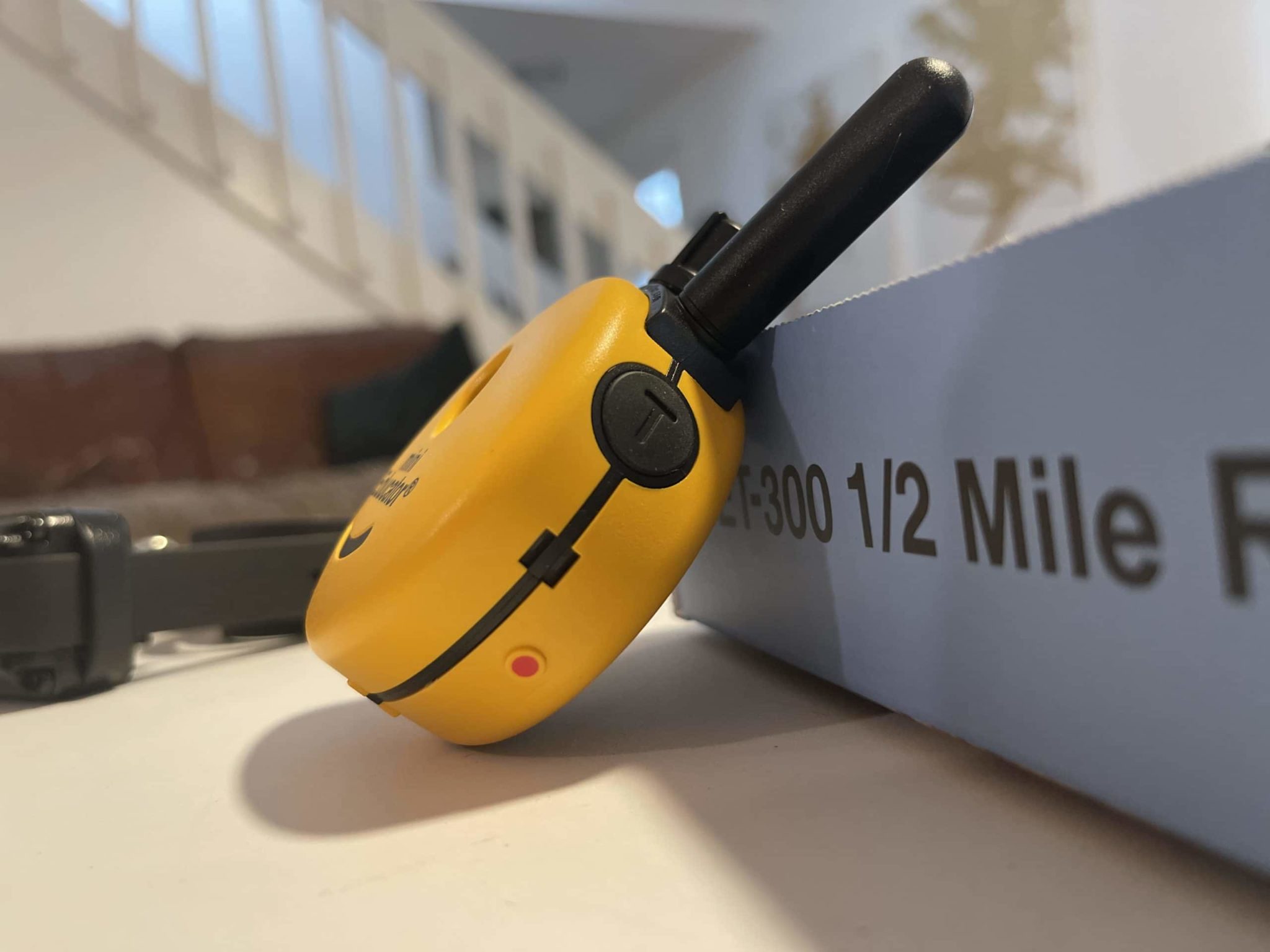
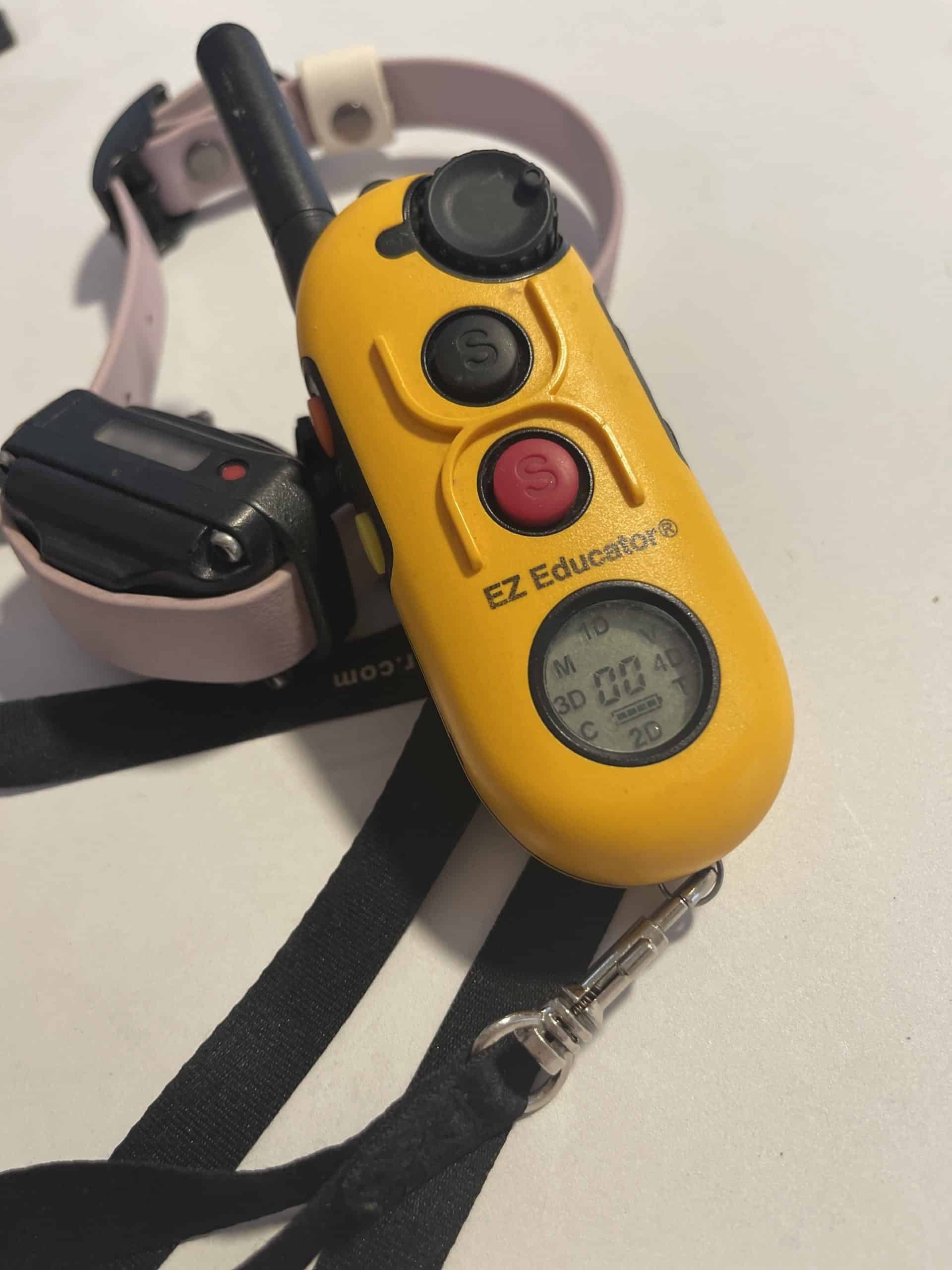
A Great Danes Environment and How It Contributes to Temperament
Great Danes are such large and powerful dogs that they require a very specific environment in order to thrive. At times, you may notice that a Great Dane might change the way they act depending on their environment.
The Great Dane Dog Breed is Very Intuitive
Large and giant breeds are so in tune with their surroundings that they, at times, can take on those stressors.
This can, in fact, lead to barking or destructive behavior, which can be really hard on pet parents for such a large breed.
What Does It Mean To Socialize a Great Dane?
Great Danes need plenty of space to move around and stretch their long, muscular bodies, and they also need regular social interaction, which does not always mean interacting with other animals or other pets. (Socialization can mean a whole ton of fun things!) Check out our guide for ideas!
The Difference Between a Young and Adult Great Dane Dog
A young Great Dane should be allowed to play with other puppies when possible, but also socialized in other ways and introduced to a dog trainer. Younger Danes may be more playful, excitable, high energy dogs. An older dog will appreciate the company of fellow older Great Danes or mellow human companions. Mature dogs are usually calm and easygoing compared to other breeds. Many Great Danes also love young kids!
Additionally, Great Dane dogs tend to have a gentle temperament throughout their lives, but this can be influenced by a number of factors such as moving, household family members, their own Great Dane owners, and other pets in the house.
Home Factors for a Giant Dog
Many giant dogs are quick to pick up on different energy in the house. Did somebody in the family recently become sick? If so, is your Great Dane’s behavior different? Is there a new baby in the house?
All of these things can play into how a Great Dane perceives it’s environment and, as a result, how they might bark or act out.
A great dane’s behavior is largely contingent on their environment and the people in it. That’s why it’s important to provide them with a stable, loving home where they can feel comfortable and secure.
Do High Energy Great Danes Display Different Behavior Issues?
Although a Great Dane has a gentle nature compared to other dogs, some Great Danes are extremely high energy. And, like all dogs, high energy Great Danes can sometimes display different behavior issues.
At times, a bored dog is a destructive dog. If your Great Dane is displaying Separation Anxiety, boredom or stress might be the root cause.
Tips to Burn Energy in Great Danes
Here are some tips on how to keep your high energy Great Dane entertained:
- Make sure they have plenty of toys to play with and that they are rotated regularly so they don’t get bored. Here are some of our favorite toys:
- Use a puzzle feeder for your dog’s food so that they can eat and be mentally stimulated at the same time. We linked some of our favorites for your convenience.
- Work on training with a long leash. This way they can run and explore while you are still in control. Practice commands such as come, sit, and stay.
- Only allow socialization with other dogs who you know to be friendly dogs. Stay away from a dog park that you are not familiar with and work to increase their intuition to trust responsible ‘role model’ dogs or humans.
- If your Great Dane is extremely active, consider getting them involved in dog sports! The National Breed Club offers an abundance of dog sports for Great Danes which can be an amazing avenue of getting energy out in a positive way.
A Fulfilled Great Dane is a Quieter and More Peaceful Great Dane
By providing your high energy Great Dane with plenty of exercise and stimulating activities, you can help prevent destructive (and loud) behavior.
The best way to combat behavior that you want to see less of is by ensuring that your dog gets plenty of exercise – both mental and physical. This will help burn off some of that extra energy and keep their minds occupied so they’re not as likely to bark or act out.
How Can I Get My Great Dane to Stop Barking at Other Dogs?
Most dog owners have experienced the embarrassment of their dog barking uncontrollably at another dog, small or large.
But for those of us who own a Great Dane, it’s a whole other level of mortification. After all, these are not small dogs we’re talking about – they are giant beasts that can unintentionally intimidate other breeds (and sometimes even people).
So what can you do to get your Great Dane to stop barking at other dogs? Here are a few tips:
One: Understanding Great Danes and Their Origin
First, realize that this CAN be an instinctual behavior for Great Danes. They were bred as hunting dogs to hunt wild boar, and their job was to track down and flush out prey. As a result, they have a strong instinct to bark at anything that moves.
So, does that mean it is okay for my Great Dane to bark and react?
Yes, Great Danes were bred originally to be a hunting dog breed, however that does not make it ‘right’ for your Great Dane to bark inside your house, in a fenced yard, or react to other dogs. Currently Great Danes are NOT being bred as ‘boar hound’ dogs, and should be redirected AWAY from barking unnecessarily.
Two: Is it Personal When My Great Dane Won’t Stop Barking?
No, don’t take it personally when your dog barks at another dog – this is just their natural response to many things: anxiety, feeling out of control, fear, boredom, etc.
Your Response is YOUR Responsibility
However, the way in which you respond to their behavior IS personal- as it is directly YOUR behavior! When you are working with your Great Dane on their behavior, stay calm and be consistent with your commands.
This is a lot easier said than done when you’ve got a 80lb+ dog barking their head off, but try to remain as calm as possible. If you get upset or anxious, it will only make the situation worse.
Three: Socializing Your Great Dane Does NOT Mean Making Them Interact With Other Dogs
So many owners in the dog world think that socializing from a young age means to get their puppy around other dogs from different breeds, the same breed, kids and humans, visit dog parks, etc.
That is true, SOMETIMES, only if the other dogs are trustworthy and good role models.
However, most of the time, socialization occurs when you provide opportunities for your Great Dane to be IN the chaos, but not APART of the chaos. An example of this playing out in real life would be sitting on a bench at a busy parking lot, teaching your dog to give you eye contact and ignore people or dogs that walk by.
This practice teaches Great Danes that life is busy and hectic, kids / humans / dogs exist but they are NOT all his for the taking and he does NOT need to bark or say hello to each and every one of them! Additionally, this important skill can teach your Great Dane that you, as the owner, are the top priority.
Four: What to do When You See A Barking Trigger with Your Great Dane
Fourth, if you see another dog, squirrel, or other distraction while out walking your Great Dane, make sure to keep them under control and calm.
If you know that your dog is particularly distracted by the German Mastiff neighbor that lives down the road, completely avoid walking down that side of the street, and instead walk on the other side of the street.
Great Danes are fast learners and can pick up on things quickly, but will need guidance. Avoiding things is NOT irresponsible.
Lastly, create a relationship in which eye contact is valuable. Providing treats and pulling the treats to your eyes before giving them to your dog is going to show your dog that your eyes are worth something good and positive.
When you see a squirrel, ask for eye contact and proceed past the distraction– making sure to reward your pup for positive results.
In Conclusion
In conclusion, the Great Dane dog breed is a fascinating one that has ups and downs throughout its entire life span. At times, they can create annoying habits like barking, but it can be fixed with responsible, balanced training and work. Do not get discouraged, and always seek professional help when you feel in over your head!
If you have any questions or concerns about your Great Dane’s behavior, please reach out to a professional dog trainer or behaviorist for help or reach us on our Facebook page for support.
READ MORE:
The Top 5 Adorable Facts About Great Danes
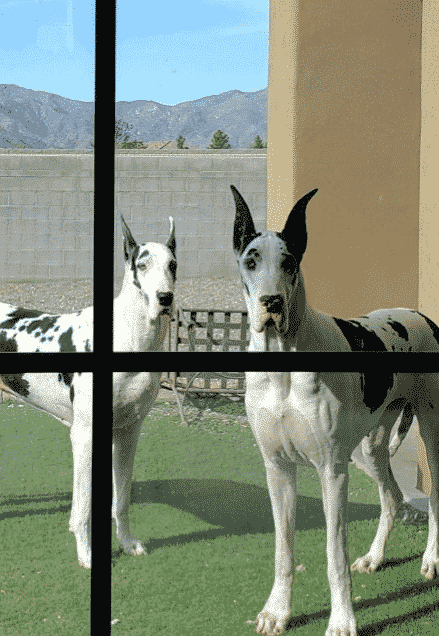
JOIN OUR COMMUNITY
Do you like modern positive+balanced off-leash dog training, science-based information, life with Danes, educated ownership and chatting with other like-minded people?
Join our growing Facebook group!
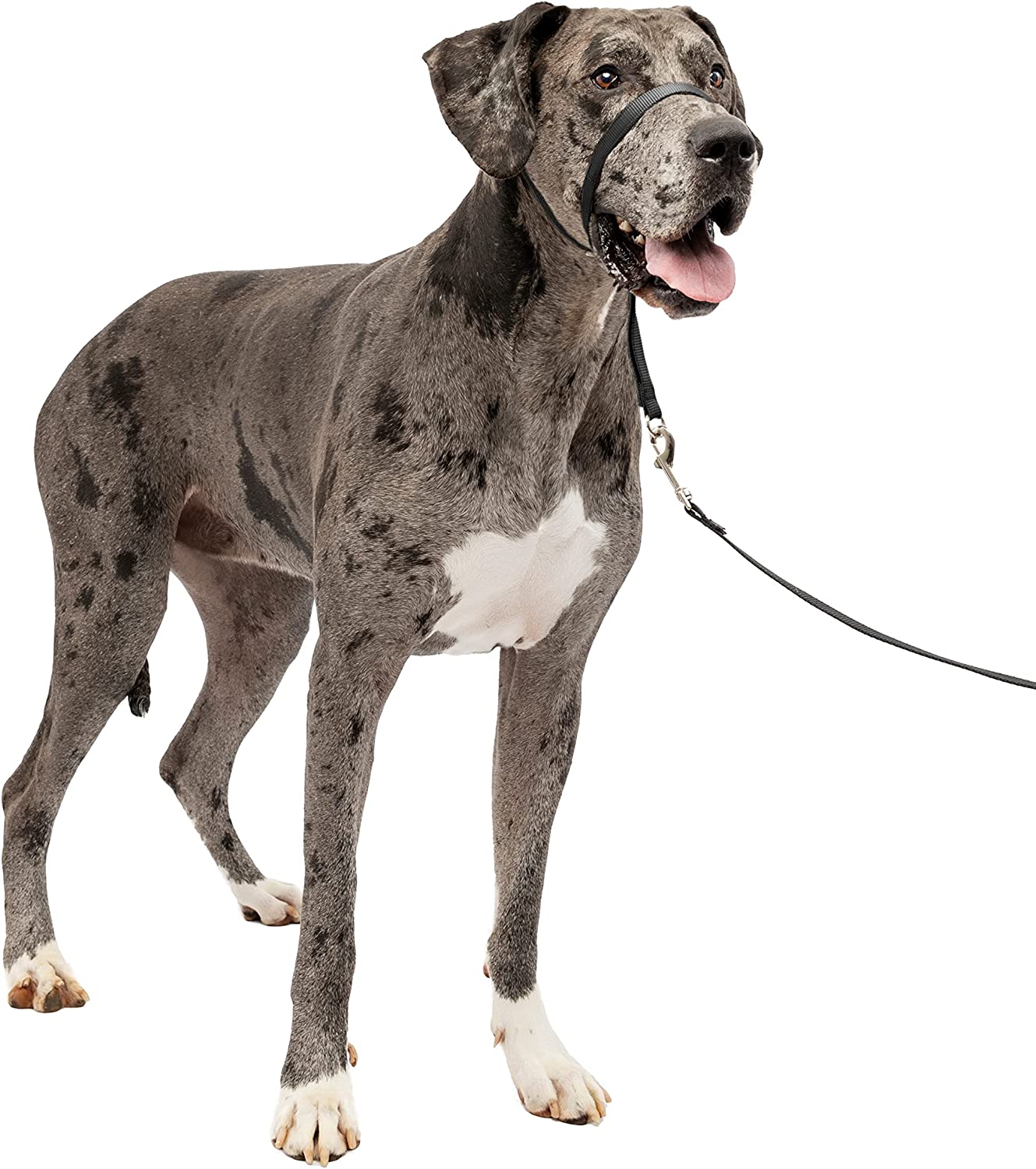
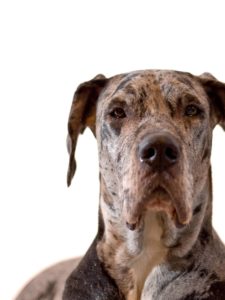
Leave a Reply